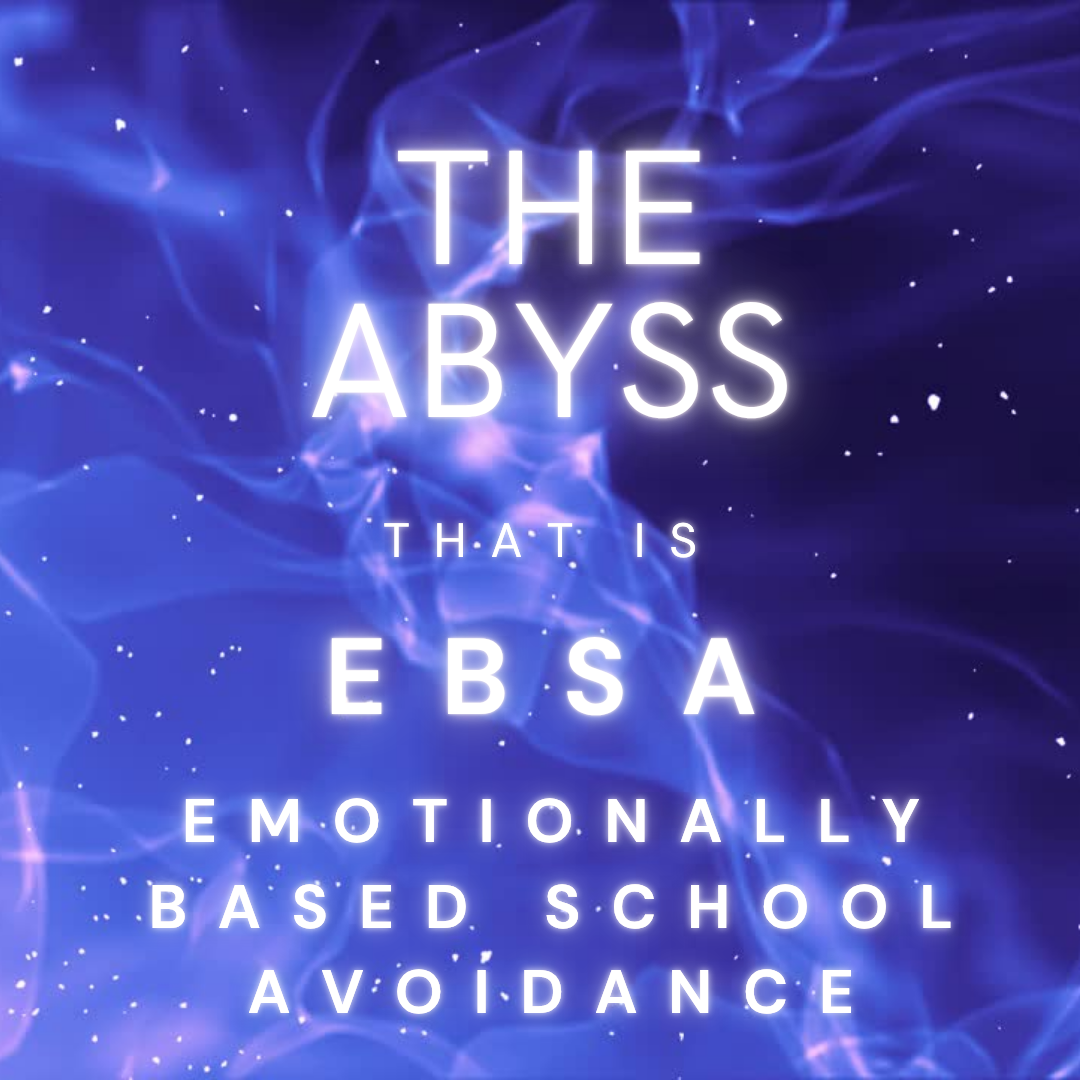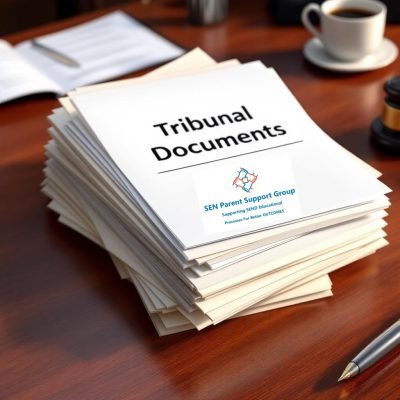Emotionally Based School Avoidance (EBSA) describes when a child or young person struggles to attend school because of anxiety, sensory overwhelm, trauma, unmet neurodivergent needs, or a combination of these factors. Early identification, a strengths‑based graduated response (Assess, Plan, Do, Review — APDR) initiated by schools together with a carefully staged reintegration plan are central to preventing long‑term exclusion and re‑establishing meaningful access to education. But it is never as straight forward as that, is it?
Legal and statutory guidance on authorising absence for EBSA
Schools should recognise EBSA as need‑driven non‑attendance and, where appropriate, record it as authorised absence while a planned, multi‑agency response is put in place.
Section 19 of the Education Act 1996 places a duty on local authorities to secure suitable education where a child “may not for any period receive suitable education unless such arrangements are made for them.” Department for Education guidance and SEN Parent Support Group EBSA toolkits make clear that headteachers decide whether to authorise absence and that mental‑health‑related illness and need‑led non‑attendance can legitimately be treated as authorised so that assessment, APDR work and reintegration planning can proceed without punitive escalation. Read our article solely on Section 19 here: Section 19: When Education Must Be Secured Outside of School – SEN Parent Support Group
Why this matters no. Key context and alternative provision
- Pupils in pupil referral units and other forms of alternative provision show much higher rates of persistent absence than pupils in mainstream settings, which demonstrates that moving a child into alternative provision without addressing unmet SEND often shifts rather than solves the problem.
- Law emphasises that when a child will be out of school for prolonged periods (for example 15 days, whether consecutive or cumulative), the local authority has a duty to secure suitable alternative education to prevent loss of learning and escalation of unmet need.
Why schools should authorise absence while APDR or alternative arrangements are set up
- Authorising absence in EBSA recognises the child’s non‑attendance as need‑driven rather than wilful and avoids punitive steps that damage trust and engagement.
- When absence is authorised, schools can prioritise assessment, APDR work and reintegration rather than disciplinary responses that often push pupils deeper into alternative provision with higher absence or worse – further declining Mental Health.
- Refusal to authorise signals that the school has not engaged with a graduated APDR approach; lack of authorisation can block access to support and leave parents unjustly blamed.
- Find help and support to communicate needs, identify triggers across cognition & learning, SEMH, communication & interaction, and sensory & physical domains, and to build tailored plans.
Use these resources to support and evidence the need for APDR cycle and authorising absence whilst taking the focus off of you – the ‘parent who struggles to get your child to attend’!
Core Needs – Parental assessment
Child Difficulty Rating – School Day broken down
Diarise Your Childs Daily Emotions & Why
Letter To School Requesting the APDR Cycle commence (incorporating the above tools)
Moving EBSA into the APDR cycle – a parent’s practical checklist
- Document the pattern and triggers
- Keep dated records of missed sessions, symptoms, meetings and any professional input; this evidence supports APDR, statutory requests and escalation if needed. Using the resources above.
- Ask for APDR to be started formally
- Request the school begins a formal Assess, Plan, Do, Review cycle and asks for all paperwork and dates to be shared with you. Use this letter
- Insist on multi‑agency input when necessary
- Ask the school to involve the SENCO, educational psychologist or iSEND/advisory teams via your LA’s EBSA pathway; document referrals and responses to protect against parent‑blame. Use this resource
- Request timely alternative education if absence will be prolonged
- If the child will miss school for around 15 days (consecutive or cumulative) or is clearly losing access to suitable education, ask the LA to secure alternative provision and ask the school to authorise absence while arrangements are made. Use this Letter to the LA
- Use meetings to secure a thorough APDR record
- At each APDR stage insist on written outcomes: assessment findings, a bespoke plan, details of “Do” interventions (who, what, when) and scheduled review dates; these records are essential if needs remain unmet or you need to escalate to a statutory needs assessment.
How APDR supports an EHCP needs assessment and reintegration
APDR creates a structured evidence trail of assessment, intervention and review. Robust APDR outcomes and repeated cycles (although repeated cycles are not required in law) showing ongoing unmet need strengthen a parent’s case when requesting a statutory needs assessment (NA) and, where appropriate, an Education, Health and Care Plan (EHCP). An EHCP can then specify phased attendance, alternative provision hours, therapeutic input, sensory and communication adjustments, and named support staff — enabling a bespoke, scaffolded reintegration that reduces anxiety and builds capability over time. What should an EHCP look like?
Practical SEN Parents action plan
- Start collecting dated evidence now (attendance, symptoms, communications).
- Ask the school to launch APDR and share all APDR paperwork and dates.
- If absence will continue, request the LA secures alternative provision and that the school authorises the absence while arrangements are set up.
- Use APDR outcomes to request a statutory needs assessment/EHCP where provision needed is beyond the school’s ordinarily available resources.
- Use the SEN Parent Support Group resource hub and EBSA toolkits for templates, sample letters and local pathway contacts, and consult the SEN Journal for upskilling your knowledge for free.
Want to read more – Click here
Access our SEND Bible
Understanding SEND
Communicating With School
All Things EHCP
- LETTER: To LA When They Use Specialist Advisory Service (SAS) INSTEAD of Educational Psychologist During EHCPNA Process
- LETTER: LA Failure To Notify If Issuing the plan
- RESOURCE: Moving Local Authorities
- LETTER: Mediation Agreement – LA agreed to issue/amend EHCP but hasn’t provided draft within 5 weeks
- LETTER: Refusal To Assess Won and LA Not Notified of EP Assessment Within 2 wk Timeframe
Attendance, Exclusions & Sanctions
Complaints
- LETTER – Enforcing Interim Education S43 with LA + Escalation Letter + Tribunal Request
- LETTER: To School When Whole School Approach To Adjustments Is Not Applied Consistently (IEP or EHCP)
- RESOURCE: LGO Outcomes
- LETTER: Right to Choose Rejection 3 Step Complaints Letters
- RESOURCE: Core Deficit Supporting Tool









